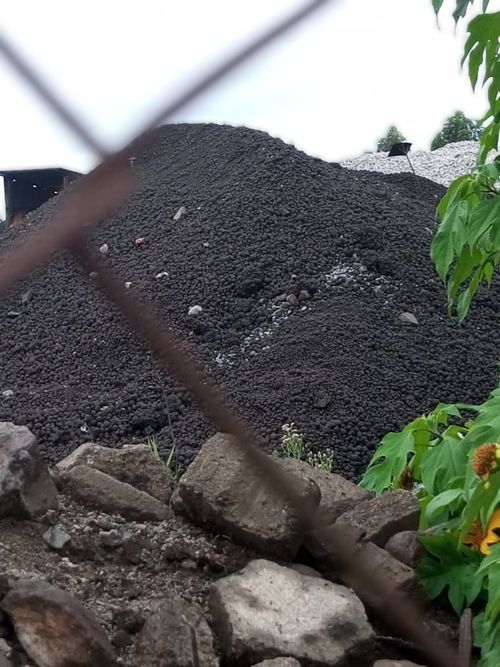By Charles Mafa & Linda Soko
The manganese smelting company in central Zambia, which once employed the workers afflicted by a brain-damaging health condition, has since replaced them with new hires. Despite compensation from the Workers Compensation Fund Control Board, a lawyer observed that the affected workers can still pursue claims against their former employer.
For more than two years, these former employees, who developed a life-altering health condition similar to Parkinson’s disease due to prolonged exposure to manganese dust, have been diligently pursuing fair compensation.
However, in April 2024, when the board began disbursing monthly compensations ranging from K120 (US$5) to K670 (US$26), their hopes were dashed.
Lawyer Billingtone Mosha highlighted the potential for legal action beyond Workers Compensation, underscoring weaknesses in Zambia’s oversight institutions, such as ZEMA, in safeguarding worker welfare.
Mosha, who provided legal insight on the matter, noted that the ex-employees can still pursue claims against their employer.
“The general law does provide, in the law of tort, the fact that you can only get a thousand kwacha or K600 from Workers Compensation, it does not preclude the employee from seeking legal redress from the court,” explained lawyer Billingtone Mosha. “Even where the Workers Compensation as far as it can go, these people have redress beyond what the Act (the Workers’ Compensation Act), so they can still bring an action, they can demand and they can be compensated.”
Moreover, Mosha emphasized that the challenges faced by these former miners highlights weaknesses in Zambia’s oversight institutions and their ability to protect the welfare of Zambian citizens.
“You also have institutions like Zema, the question is, is Zema doing enough when they licence these persons to setup their factories. Are they doing enough to ensure and also to follow up to ensure that the workers’ safety is taken into account?” Asked Mosha.
Expanding on this point, he remarked, “In cases like the one we’re addressing, has Zema looked at what kind of emissions come out, apart from the surrounding community, the first line is the worker who is dealing with the product”.
[Watch the video interview of Lawyer Billingtone Mosha]
MakanDay’s query regarding the frequency of inspections conducted by the Zambia Environmental Management Agency (ZEMA) on companies engaged in mineral smelting to ensure compliance remains unanswered by the environmental protection agency.
Profiles of affected workers, like Nazario Soko and Pethias Mukosha, underscore the human toll, with symptoms ranging from speech difficulties to Parkinson-like symptoms.
Nazario Soko, 24, is one of the 28 former employees of Southern Africa Ferro Alloys Limited (SAFAL), an Indian-owned company located in Kanona, a small railway siding settlement, 50 kms east of Serenje town in central Zambia. He is among those affected by a severe brain-damaging health condition due to prolonged exposure to manganese powder.
Soko had only been employed for two years when he began experiencing body pains and difficulty maintaining balance while walking. Fresh out of secondary education in 2019, he had hoped to earn money for college by joining the company, only to be met with tragedy.
“I dreamt of going to college, starting a family, but now those dreams are shattered as I struggle to perform even the simplest tasks on my own,” he explained.
Pethias Mukosha is another victim. The prolonged exposure to manganese has left Mukosha with speech difficulties and challenges in maintaining balance while walking.
Raban Kunda is also among those grappling with manganism due to manganese exposure. He experiences body pains, making long walks arduous, and also suffers from stomach pains and loss of appetite.
Kunda shared the plight of his friend, Mukosha, a father of two, who is incapacitated by manganism, rendering him unable to support his family.
“My friend, Mukosha, is facing a huge challenge. He can’t speak or carry out any tasks,” he lamented.
Some of the youthful and physically capable former employees delegated their interviews to their wives and families, who candidly revealed their challenges to MakanDay.
Keegan Mwelwa, aged 38 and a father of four, worked for SAFAL for nearly eight years as a batcher. He was the first employee to be diagnosed with the disease in November 2021.
His wife, Yvone Kunda, explained that her husband’s condition has since deteriorated into Parkinson’s disease.
“I haven’t noticed any improvement. Mwelwa’s condition deteriorates with each passing day,” she lamented. “He’s on Parkinson’s medication; however, he struggles to carry out any tasks, experiences speech difficulties, and has trouble walking properly.”
[Watch the video interview featuring Keegan Mwelwa's wife]
Expert analysis from the doctor
Dr. Dickson Munkombwe, a neurologist at Levy Mwanawasa University Teaching Hospital, explained to MakanDay that manganism arises from the toxic buildup of manganese in the brain and associated structures.
Dr. Munkombwe provided insights into the repercussions of this condition on patients and their families.
“If the symptoms are irreversible, it’s advisable to provide counseling to help them understand that this is now a chronic condition, and the patients’ or their loved ones’ baseline functionality may not alter significantly,” he remarked.
[Watch the video interview featuring neurologist Dr. Dickson Munkombwe shedding light on the condition's irreversible effects.]
The compensation process, marred by discrepancies in testing and compensation amounts, raises questions about corporate responsibility and governmental oversight.
Since their diagnosis with the disease in 2022, they have remained on their former employer’s payroll, a measure that helped alleviate their families’ financial strain.
However, with Workers Compensation’s compensation approval, they face removal from the payroll, resulting in the loss of their monthly salaries in the range of K2,400 (US$92) and K2,900 (US$111) they were still receiving.
The board has not explained how these modest compensations were calculated. Nonetheless, the affected former workers said they all underwent hospital tests to gauge the extent of damage caused by suspected manganese exposure.
“I was shocked when I received K120 in my account. We first underwent tests at Serenje (Hospital) to determine the percentages (of manganese in our bodies), and I was diagnosed with 15 percent,” Soko explained.
“I won’t manage to explain,” said Festus Miselo, another patient now residing in his in-laws’ compound. Seated on the ground with legs outstretched, he appeared short of breath, panting slightly. He deferred the interview to his wife, who occupied a stool beside him, as he found it challenging to engage in conversation.
https://www.youtube.com/watch?v=2TTCdix31gY&t=1s
[Watch the video interview of Miselo’s wife]
“He has started receiving K600 from Workers’ Compensation. This means that the company where he was employed, where they paid him a monthly salary of K2,800, will stop,” explained Miselo’s wife. “That (K600) won’t be enough to support the family.”
The big question
Given the possible power imbalances between the affected individuals and the corporate entity – SAFAL, is remains uncertain whether the former workers can pursue a legal claim from their former employer or challenge the method used by the board to determining compensation.
According to compensation law, the employer fulfills their responsibilities by remitting their dues to the Workers Compensation Fund, which then assesses the suitable compensation amount. This often leaves the employer adopting a passive stance, as observed in MakanDay’s interviews with other former workers enduring life-altering injuries supported by the fund.
“Even in these situations, as an employer, you must demonstrate empathy,” emphasized lawyer Mosha. “You can’t expect someone disabled for life to sustain themselves on K600 or K800.”
Despite MakanDay’s written request for clarification from the board, they have yet to provide a response.
MakanDay has established that initially, all the former workers exhibiting symptoms underwent tests at the University Teaching Hospital (UTH) in Lusaka, the country’s highest referral hospital, to assess manganese levels in their bodies.
However, when the board requested a second round of testing at Serenje Hospital, a facility of lower standing with fewer specialist doctors compared to UTH, the manganese percentage levels for all patients experienced significant alterations.
For instance, while a patient’s test result at UTH indicated 100 percent manganese, the subsequent results from Serenje were below 20 percent.
The rationale behind the board’s decision to opt for a second test at Serenje Hospital remains unclear. Nonetheless, it prompts serious questions into the criteria employed by the board to determine compensation amounts for affected individuals.
Additionally, the potential power indifferences between the corporate entity and the victims could have also affected the outcome of the compensation decision.
SAFAL, the company at the centre of the controversy, faces scrutiny amid promises to adhere to the law but remains unclear on additional support for affected workers.
SAFAL is owned by a Zambian and three Indian nationals – Ajay Badrinaraya Shastry, Vijay Agarwal, Madhav Dube and Nikhilesh Singh. The Zambian is Pankaj Jain, according to the Patents and Company Registration Agency (PACRA) documents. According to the company website, SAFAL pioneered the manganese processing movement in Zambia when it was established in March 2011.
It says the company was the first manganese processing unit in the country and has paved the way for the establishment of similar units, currently in excess of 15 nationwide. With a customer base located in Europe, America, Russia, South East Asia and the UAE, according to their website, SAFAL has successfully established its reputation as a hub of manganese processing in Zambia. “We will follow the Law. What ever (sic) is expected from us to be done. We will do it,” said Pankaj Jain Director of SAFAL in Zambia.
The methods SAFAL plans to employ to offer additional support to impacted former workers like Miselo and others, given the permanent nature of their condition, remain unclear.
Governmental investigations into the matter, initiated in response to growing concerns, signal a potential for accountability, though the status of affected employees remains uncertain.
The government’s investigation into the health condition of former SAFAL manganese workers has been ongoing for over a year.
On Thursday, March 9th, 2023, Minister of Health Sylvia Masebo issued a statement in the national assembly, which revealed that the government became aware of the condition of SAFAL workers in September 2022.
Minister Brenda Tambatamba, representing Masebo, disclosed that, according to health records, 28 workers have exhibited symptoms thus far, with no reported fatalities attributed to the disease.
Furthermore, Tambatamba stated that the Occupational Health Safety Institute, under the Ministry of Labour and Social Security, was informed, and blood samples were collected from 281 SAFAL employees to determine the underlying cause of the issue.
“The results indicate that 271, which is 96.4 percent, have manganese levels in their blood above normal,” Tambatamba stated.
Masebo also disclosed the formation of a team comprising representatives from the Ministry of Health, Ministry of Labour and Social Security, Ministry of Mines and Minerals Development, Zambia Environmental Management Agency, Occupational Health and Safety Institute (OHSI), and the Mine Safety Department to urgently investigate the matter.
The minister emphasised that the findings of the investigation would dictate the appropriate course of action regarding SAFAL.
The status of the other former employees remains unknown, as some of them relocated shortly after being laid off.

Discover more from MAKANDAY
Subscribe to get the latest posts sent to your email.



